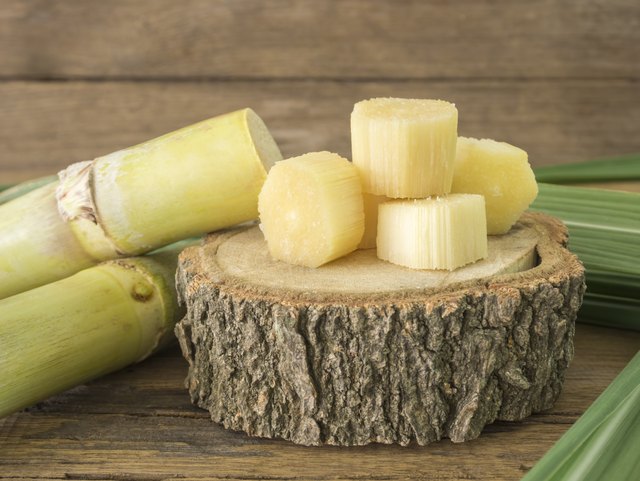Why Cane Sugar Handling Chemicals Are Important for Modern Sugar Refining
The duty of walking stick sugar processing chemicals in modern-day sugar refining can not be overemphasized, as they are indispensable to boosting both the efficiency of removal and the general top quality of the end product. Agents such as phosphoric acid and details flocculants are utilized to eliminate pollutants, leading to sugar that not only satisfies customer assumptions however likewise sticks to sector requirements. Nevertheless, the effects of these chemicals expand beyond high quality, touching upon market dynamics and ecological considerations. This raises vital concerns concerning the sustainability of such practices and their influence on the future of sugar production.
Duty of Handling Chemicals
The efficiency of cane sugar processing pivots considerably on the critical application of processing chemicals. These chemicals play a crucial duty in boosting the effectiveness and top quality of sugar extraction and refining. From the first phases of juice extraction to the last purification actions, handling chemicals help with various vital operations.
In the extraction phase, chemicals such as phosphoric acid and calcium hydroxide are used to optimize the clarification process, assisting to get rid of pollutants and suspended solids from the cane juice. This not only boosts the yield however additionally ensures the clearness of the end product. Additionally, agents like flocculants aid in the rapid settling of impurities, thus streamlining the general procedure.
As the processing breakthroughs, chemicals are used in decolorization and crystallization stages. Activated carbon and ion exchange materials serve to get rid of color and smell, guaranteeing that the polished sugar meets consumer high quality criteria. Inevitably, the role of handling chemicals extends past operational effectiveness; they considerably impact the sensory features of the end product, contributing to market competition. Therefore, the meticulous selection and application of these chemicals are essential for achieving ideal outcomes in walking stick sugar processing.
Secret Sorts Of Chemicals
Cane sugar handling counts on a selection of vital chemicals that assist in each phase of manufacturing. These chemicals play necessary roles in clarifying, bleaching, and detoxifying the sugar removed from walking stick.
One primary category of chemicals consists of flocculants, such as polyacrylamide, which aid in the information procedure by advertising the aggregation and settling of impurities. Additionally, calcium hydroxide is usually utilized to neutralize level of acidity and help in the elimination of non-sugar elements.
Lightening representatives, such as triggered carbon and sulfur dioxide, are made use of to decolorize the syrup, resulting in a clearer end product. These chemicals assist eliminate color compounds that might impact the sugar's appearance and marketability.
Additionally, phosphoric acid acts as a pH regulator throughout the processing phases, making sure optimal problems for the enzymatic activities involved in sugar removal and filtration.
Various other important agents include edta (ethylenediaminetetraacetic acid), which chelates steel ions that could catalyze undesirable responses, and salt hydroxide, which helps in pH control throughout the refining process. Jointly, these chemicals improve performance and ensure a top quality walking cane sugar product.
Benefits for Sugar Top Quality
Commonly ignored, making use of certain handling chemicals substantially improves the general high quality of walking stick sugar. These chemicals play an essential role in refining processes, ensuring that the last item fulfills strict industry standards for purity and preference.

Additionally, refining chemicals help in achieving a constant granulation and appearance, which are important for customer acceptance. By controlling the formation procedure, these chemicals make certain that the sugar crystals develop evenly, leading to a much more appealing product that liquifies well in various applications.
Moreover, using these chemicals can enhance the service life of walking cane sugar by minimizing moisture absorption and microbial growth. In general, the critical application of handling chemicals is vital for supplying top notch cane sugar that meets customer expectations and market demands.
Ecological Influence Considerations

In addition, the energy-intensive nature of sugar refining, worsened by chemical use, often leads to enhanced carbon emissions. This adds to climate change and elevates concerns pertaining to the sustainability of existing refining methods. Furthermore, the sourcing of these chemicals might include methods that endanger biodiversity, such as monoculture farming, which lowers the resilience of agricultural environments.

To minimize these effects, sugar refiners are significantly discovering sustainable choices and adopting best techniques that decrease chemical use. Carrying out extensive ecological administration systems can aid guarantee that the refining procedure lines up with environmental requirements and promotes have a peek at this website biodiversity. Inevitably, a well balanced technique that prioritizes both sugar quality and environmental stewardship is vital for the long-lasting practicality of the sugar market.
Future Patterns in Refining
As the sugar sector grapples with the ecological obstacles connected with conventional refining methods, innovative strategies are emerging to enhance both performance and sustainability. One considerable pattern is the adoption of green chemistry principles, which prioritize making use of non-toxic, eco-friendly processing chemicals. This shift not just minimizes environmental impact yet additionally addresses customer need for cleaner production techniques.
Another encouraging development is the implementation of sophisticated filtration modern technologies, such as membrane separation and adsorption processes. These methods boost the quality and high quality of the sugar while minimizing the quantity of wastewater generated during refining. Additionally, the combination of electronic technologies, including IoT and AI, is changing functional efficiency by enabling real-time monitoring and anticipating maintenance, hence decreasing resource waste.
In addition, using byproducts from sugar refining, such as bagasse and molasses, is gaining grip. These products can be transformed right into biofuels or value-added products, adding to a circular economy within the sector. Collectively, these fads signify a change in the direction of more lasting techniques that not only boost operational effectiveness however likewise line up with international sustainability goals, making certain the future feasibility of sugar refining.
Final Thought
Walking stick sugar handling chemicals are necessary in modern-day sugar refining, considerably improving the efficiency and top quality of sugar removal. The strategic use of these chemicals not only boosts the purity and taste of the end read this post here product yet also makes sure constant condensation and structure. As the sector increasingly prioritizes sustainability, the fostering of environmentally-friendly processing representatives is likely to form future fads in refining, inevitably bring about higher top quality items and prolonged life span for customers.

Inevitably, a balanced method that focuses on both sugar top quality and environmental stewardship is crucial for the long-term stability of the sugar industry.
Cane sugar processing chemicals are that site vital in modern sugar refining, dramatically improving the performance and high quality of sugar extraction.